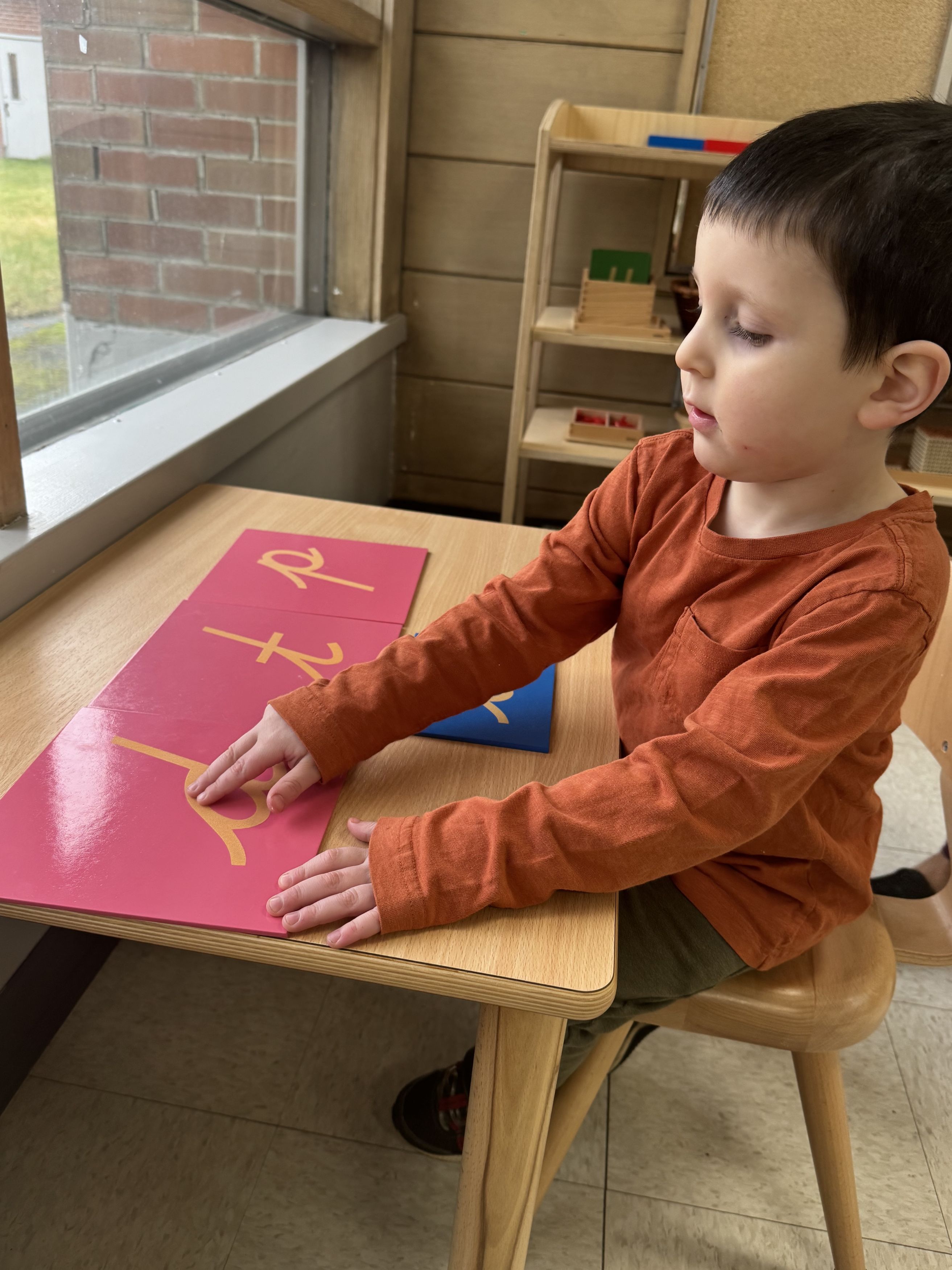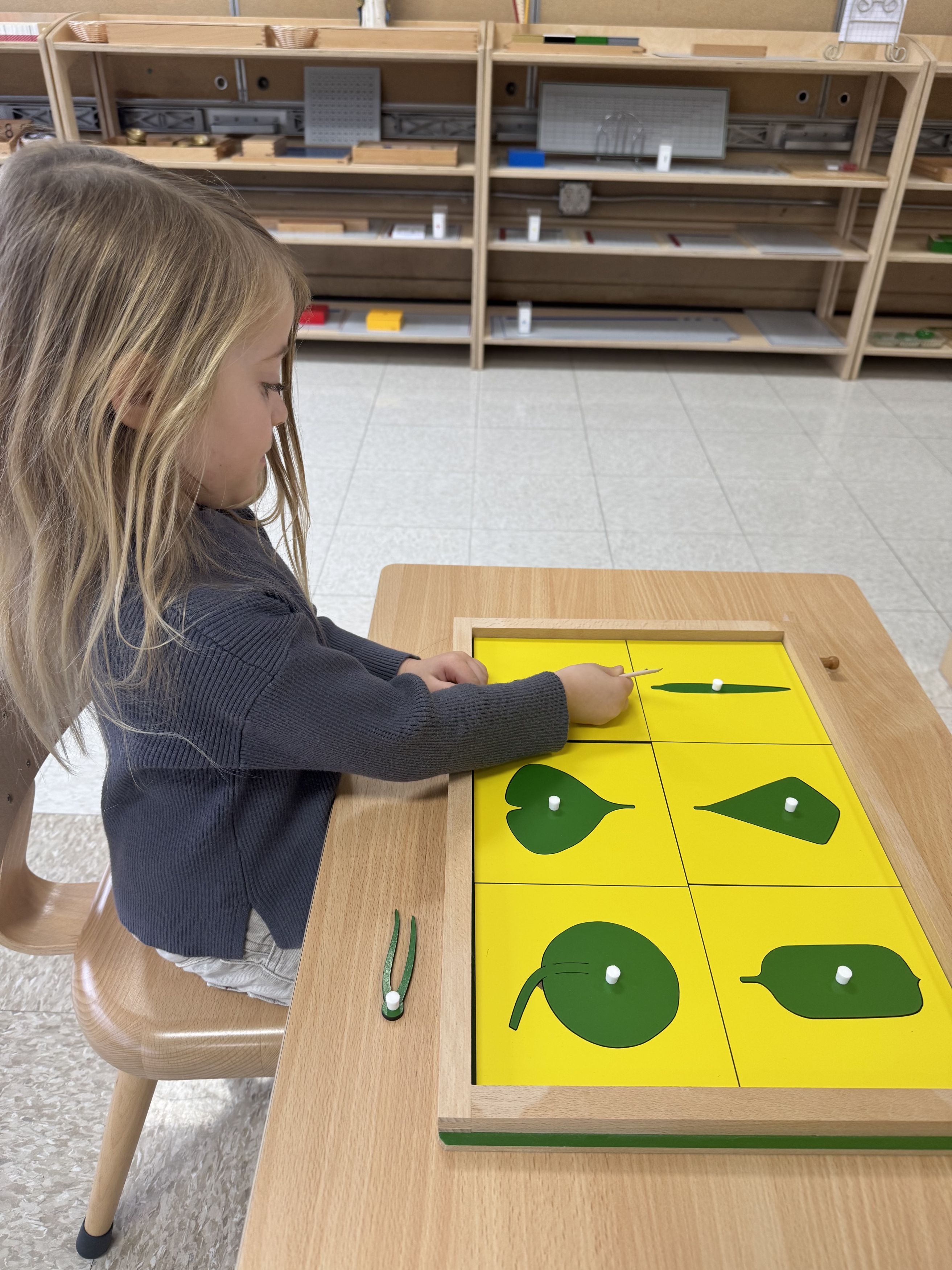Montessori
Montessori Primary Classroom - Ages 3-6
In our Montessori Primary classroom, we educate the whole child—spiritual, physical, emotional, and intellectual in a prepared environment that allows children to respond to their natural tendency to work.

Children are free to move around the room and learn through “works” that isolate skills to be learned.
The Language area teaches oral and written language, vocabulary, reading, and grammar. The written word is integrated throughout Montessori programs, coupled with the sensory experiences at the foundational level of tracing letters with one’s hand, to sounding out all the letters of the alphabet.
The Mathematics area helps children to understand abstract concepts by working with concrete manipulatives. The ability to problem-solve is essential and adds core skills to their ability to break down concepts into workable areas.

The Practical life area offers children the opportunity to discover care of self and the environment, exercises of grace and courtesy, and coordination of physical movement. The sensorial materials aid the children in learning to order and classify by touching, seeing, smelling, tasting, listening, and exploring.
The Primary classroom incorporates Catechesis of the Good Shepherd, a Montessori-based catechesis that aids the child’s encounter with God and prepares him or her for a life of full participation in the Catholic Church.
HOW DOES MONTESSORI EDUCATION FIT INTO THE CLASSICAL MODEL?
The philosophy of Montessori education is to support students in their natural development of mind, body, and soul. This development happens through independent work sessions and a natural environment that enriches the students’ love for learning. Both Montessori and classical education seek to allow students to behold the truth, goodness, and beauty in the world as revealed to mankind through the Incarnation.
Both classical and Montessori education foster students learning the art of observation and becoming equipped to think critically and objectively in finding the Truth.
Finally, both Montessori and classical education are rooted in what comes naturally to children. The natural development of students in a Montessori classroom offers an excellent foundation for the natural progression of students through their years in a classical school.
Maria Montessori
Born in Italy in 1870, Dr. Maria Montessori became the first woman medical doctor in Italy. Her clinical work in medicine led her to analyze how children learn and how they build themselves from what they find in their immediate environment.
In 1906, she worked with a group of sixty children of working parents from the San Lorenzo district of Rome. There she founded her famous Casa Dei Bambini, or Children’s House. What ultimately became the Montessori method of education developed there, based upon Montessori’s scientific observations of the children’s almost effortless ability to absorb knowledge from their surroundings, as well as their tireless interest in manipulating materials. Every piece of equipment, every exercise, every method Montessori developed was based on her observation and experience with children.
The Montessori classroom is 5-days a week (Monday-Friday) AM only - 8:30am - 11:30am
